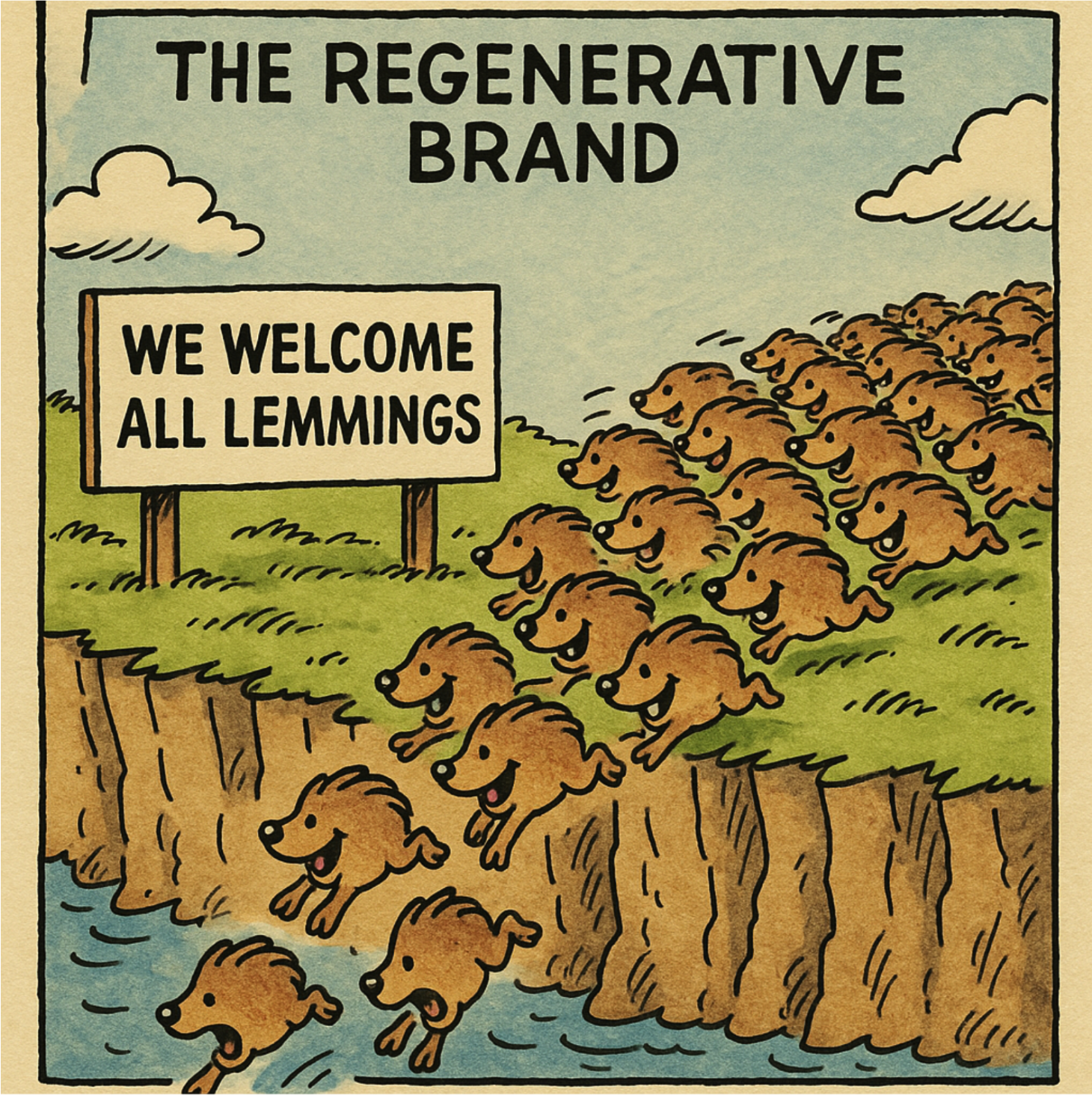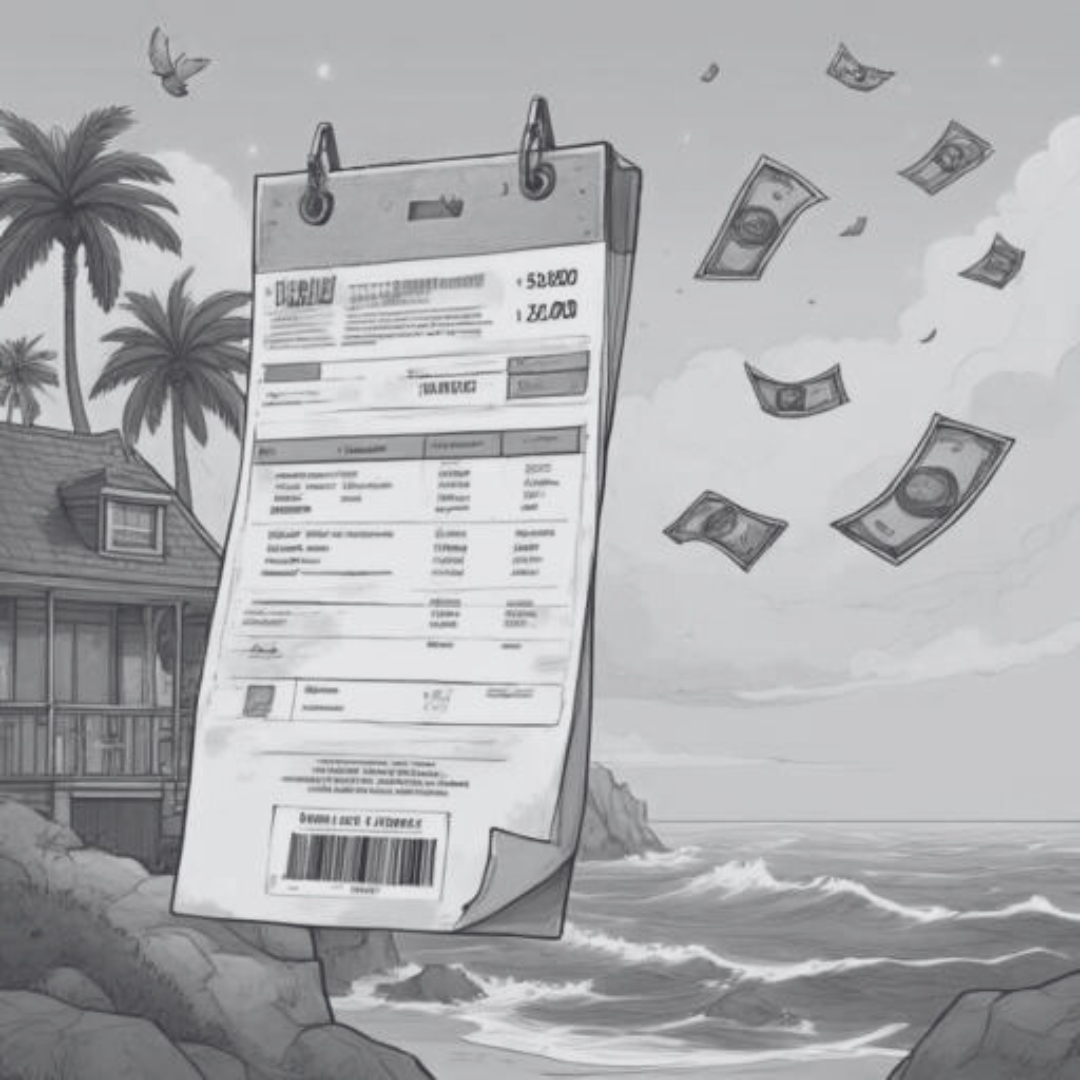
The Regenerative Brand
What does this title do to you? If you choke on your coffee and feel righteous indignation rising, this piece is not for you. If you think, "Aha—an article about how we can brand ourselves as regenerative," this might still be for you, but only if you're ready to have that impulse dismantled.
Regenerative should never have been an adjective. We've turned regenerative into a decorative word: regenerative strategies, regenerative organisations, regenerative tourism. All wrong. Regeneration is not a modifier you sprinkle on the old machine; it is a different machine. Regenerative thinking starts from system-shifting practice—ways of acting that stop extracting from the planet and begin repairing it, leaving more capacity and possibility for those who come after us. Follow that logic and you inevitably run into an over-extended capitalism, where politics often becomes mute exactly because it is nested inside the system under question. That is the point: regeneration is structural, not stylistic.

So, no: there is no such thing as a "regenerative brand."
A brand can't absolve a system. But - this matters - a brand can help a system change.
Here is the inversion that helps: you can't be regenerative by brand, but you can design strategies, governance, and operating models that create space for bottom-up initiatives, circular principles, and system-changing practices—and then build a brand that makes those practices visible, legible, and desirable. Right now, too many places treat good initiatives as add-ons. Because organisations are siloed, sustainability pilots paddle upstream while sales, product, and communications keep the river flowing in the opposite direction. The result is predictable: internal friction, external confusion, and a lot of water carried to the sea.
"I hate marketing" is not a regenerative position.
People who loathe branding and marketing on principle - seeing them as the devil standing in the way of change - miss the tool for the job. If you care about regeneration, you should care about marketing more than most. Why? Because the work of communications is expectation-setting and behaviour design at scale. It is the discipline that can tell future visitors - and investors, residents, staff - what is expected of them, what is valued locally, and how to participate without doing harm. At its best, marketing was never just "promotion"; it was the orchestration of product, place, price, and experience. Time to return to that, updated for a world that needs restoration, not reach for reach's sake.
A note from Aruba.
Consider Aruba. The Aruba Tourism Authority does a great job to counter the impacts of mass tourism. On the ground, activists and citizen-science groups are building sensor networks to track water quality, trialling smart bins to cut litter, and planting school food forests to reduce dependency and teach resilience. Volunteers show up. ATA takes destination development seriously. Hotels experiment. There is momentum.
But if the dominant story remains a generic paradise - One Happy Island and endless cocktails—then these efforts mop the floor while the tap is still running. The operating model says "regenerate"; the master narrative still says "consume." That gap is not cosmetic. It is the difference between cumulative impact and performative offset.
Out of the sea of sameness.
The places that move people - and move the needle - are usually those brave enough to leave the sea of sameness. Years ago, Greenland ran with a disarming angle: Why Greenland May Not Be For You. It was both a clever campaign and a filter, inviting people to examine their motivations and align with the realities of the place. That's expectation management in service of carrying capacity, culture, and truth.
A brand will not save a broken system. But a brand that tells the truth, sets the right expectations, and celebrates stewardship can stop undermining the people actually repairing the system - and start recruiting allies for them. If your comms still sell a weightless fantasy while your teams fight for carrying capacity, you are step-counting your way off a cliff.
Branding and marketing are the management of expectations.
There is, strictly speaking, no "regenerative brand." There are regenerative practices that urgently need honest branding - branding that widens the circle of care, reduces the harm of mismatch, and helps a place keep its promise to the future.
- FRANK CUYPERS


